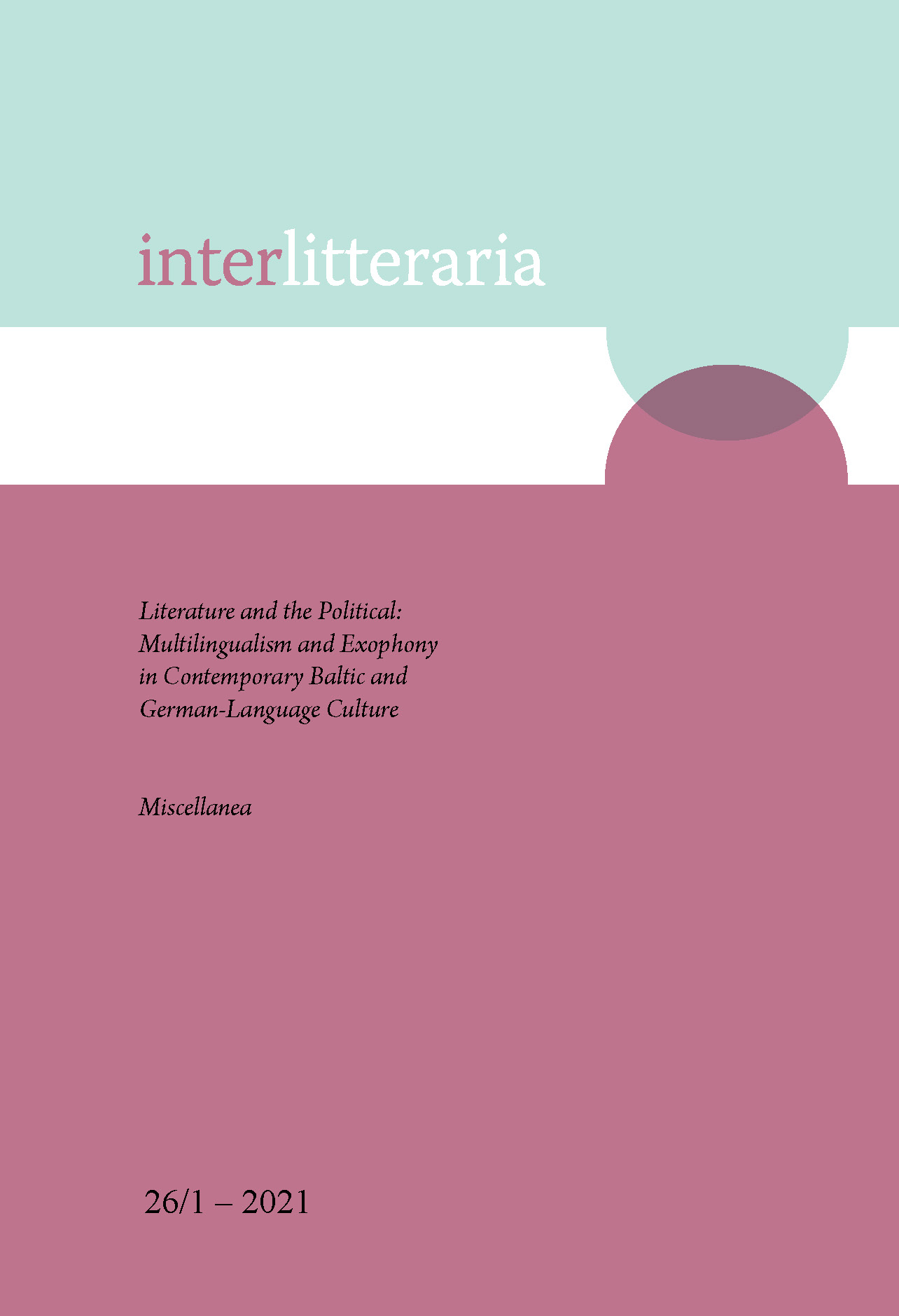Dinner with Mock Faustus: Multilingual Cuisine Cooks the Identity
DOI:
https://doi.org/10.12697/IL.2021.26.1.9Keywords:
Faustus, multilingualism, intertextuality, gastropoetics, gastronovel, gastroliterary, identityAbstract
Phenomena related to gastronomy form an important part of both individual and collective identities. The gastronomical dimensions of literature can often be perceived as a commentary on the political, historical and societal, going beyond just the food. As cuisines are becoming more mixed globally, languages describing gastronomical scenes in literature are also becoming more multilingual.
The novel Mock Faustus (1973), by the Latvian writer Marģers Zariņš, fuses the gastronomical and the multilingual to the extreme, producing a utopian linguistic hybrid of the Latvian language to which a mix of foreign languages and countless intertextual references are added. This is achieved by the gastronomical vocabulary and imagery omnipresent in the narrative of writing a fictional cookbook. The depiction of gastronomical phenomena allows Zariņš to indirectly comment on Latvian history from the 1930s to 1945 and the confused and fragmented identities of these times.
Downloads
Downloads
Published
Issue
Section
License
The contents of Interlitteraria are published under CC BY-NC-ND licence.


